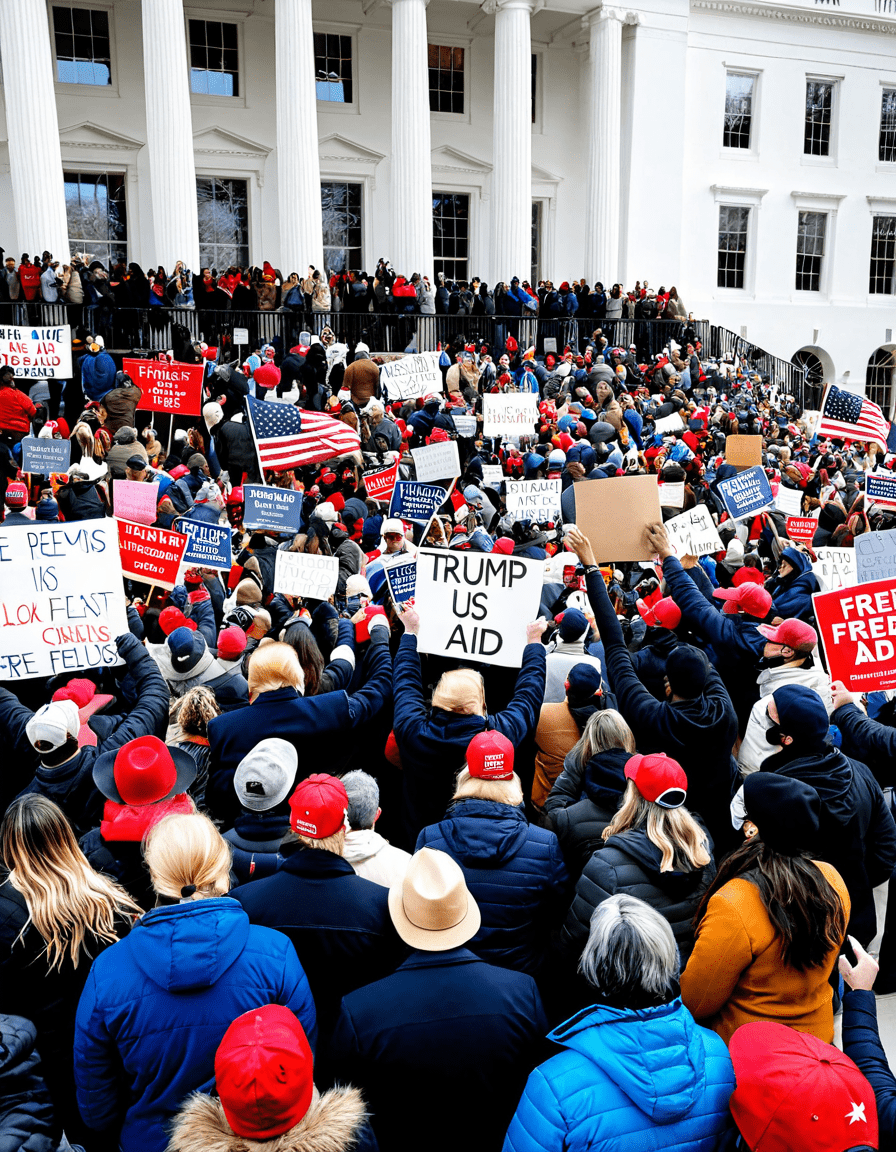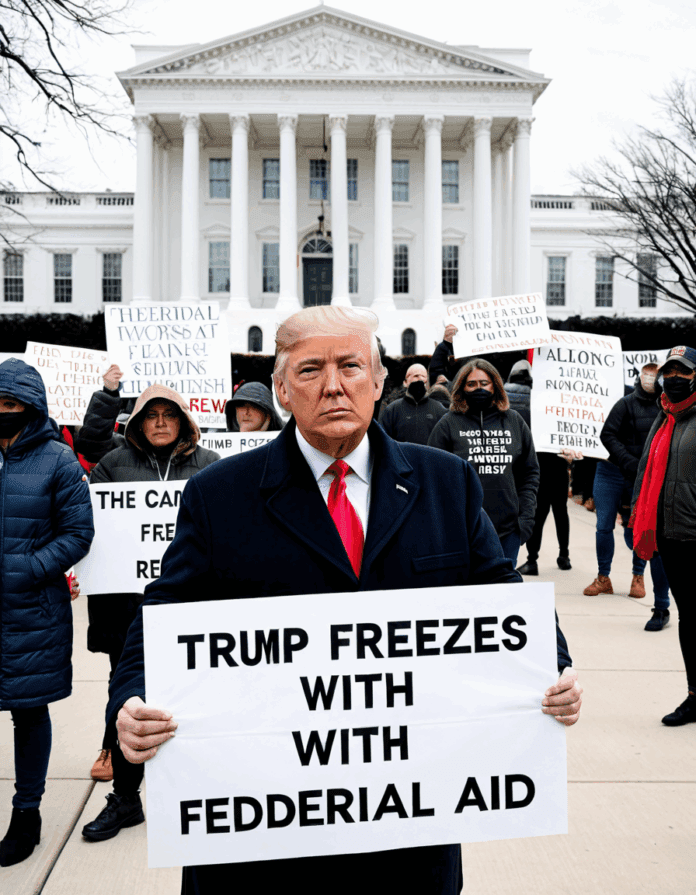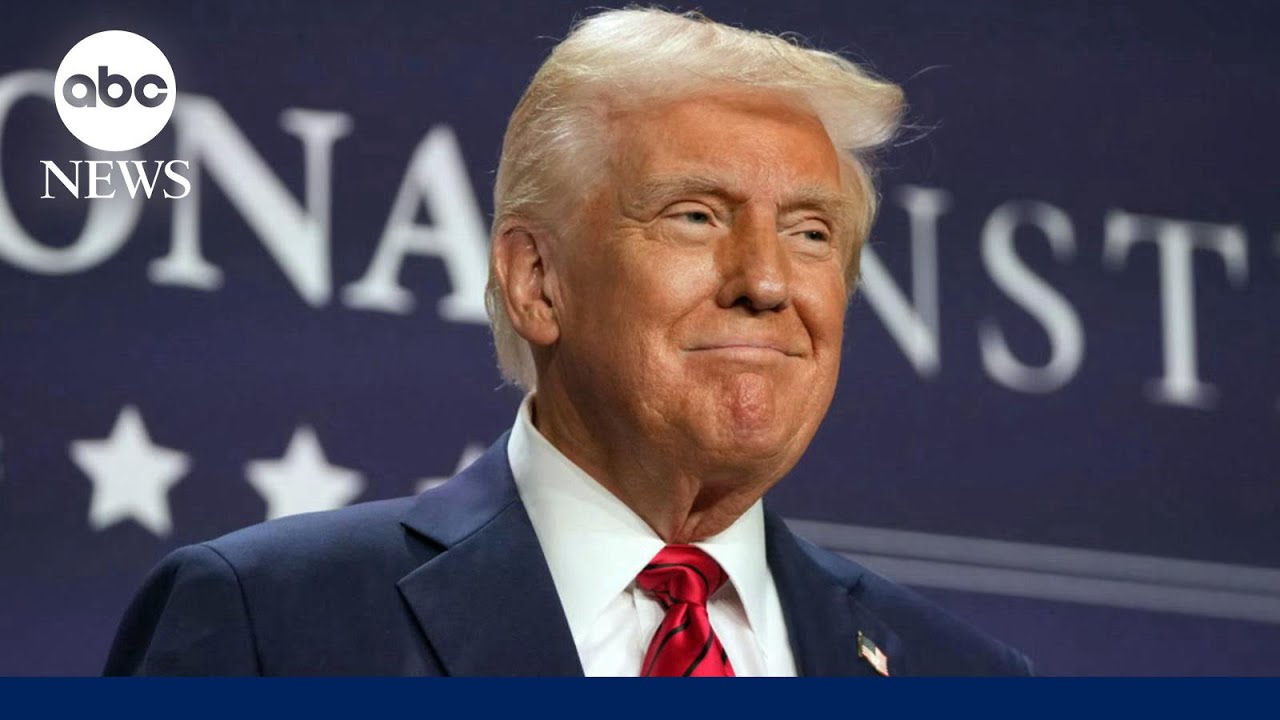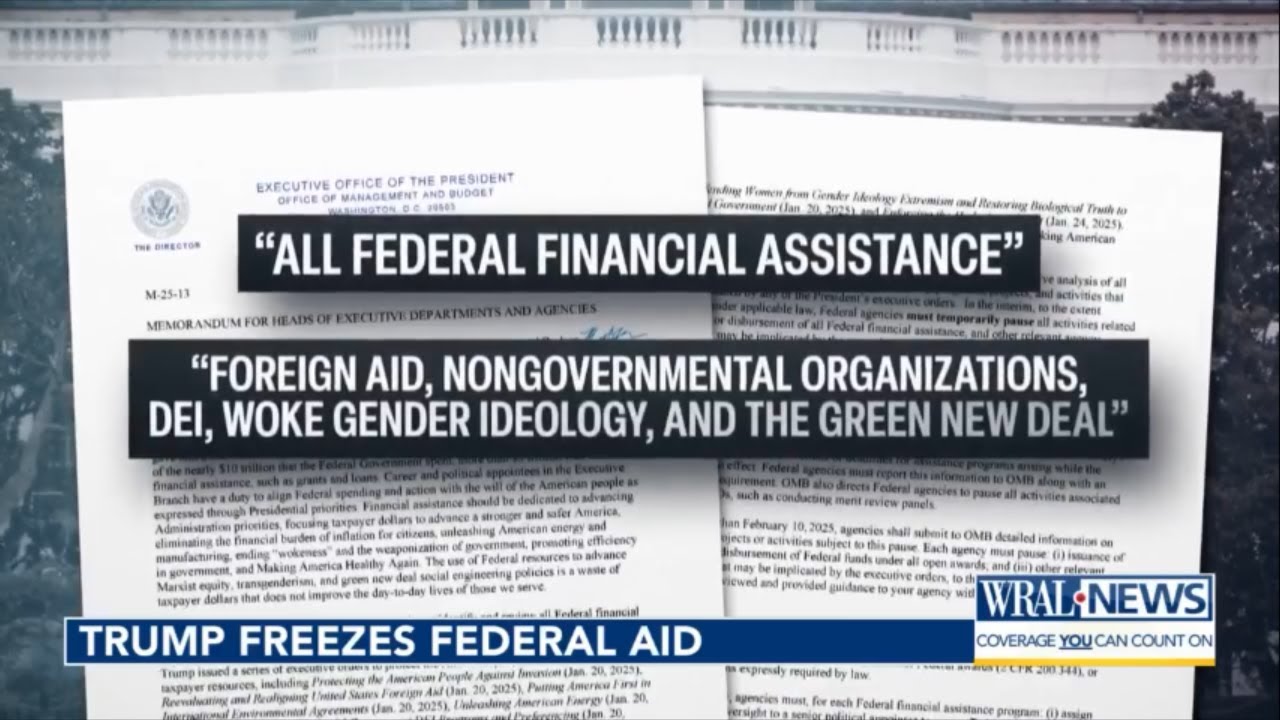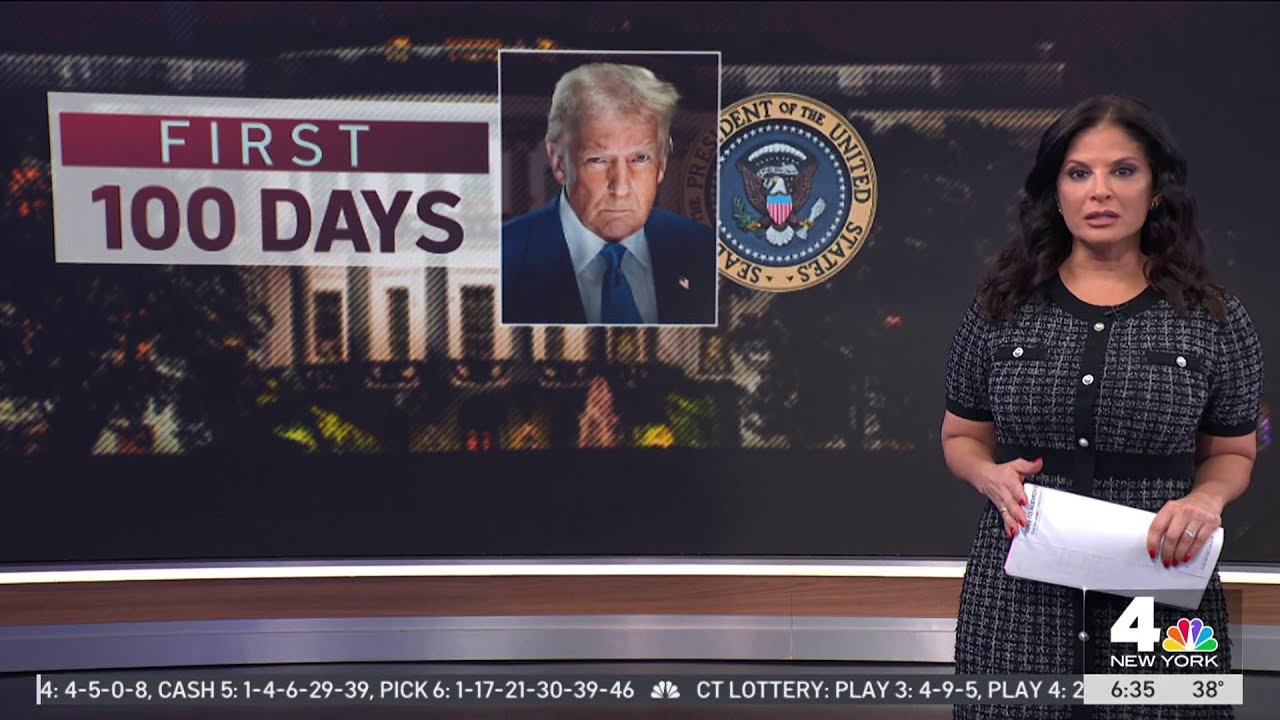The decision by former President Donald Trump to freeze federal aid has sent shockwaves throughout the United States, igniting unrest and discontent among various sectors of society. With communities across the nation facing significant cuts to essential services, everyday Americans are grappling with the immediate and long-term ramifications of this controversial move. As protests surge and court challenges unfold, the political landscape is shifting, raising questions about governance, responsibility, and the fundamental role of federal aid.
## Trump Freezes Federal Aid, Sparking Nationwide Unrest
1. Impact on Health Services
The freeze on federal aid has crippled healthcare systems, especially in underserved regions. States like Michigan, which largely depend on federal funds for Medicaid expansion, are already experiencing significant service reductions. Hospitals are struggling under the strain; they’ve reported longer patient wait times and a decrease in essential health services. Individuals reliant on these services, including low-income families and the elderly, find themselves at an even greater disadvantage during a time of health crises.
2. Educational Setbacks
Federal funding cuts have brought numerous educational programs to a standstill across the country. Schools in California face the brunt of these budget cuts, making it increasingly difficult to deliver essential services like nutritional meal programs and special education resources. Educators are expressing deep concern for the futures of countless students who rely on these vital services for their personal and academic development. As a result, the educational divide between privileged and disadvantaged communities is only expected to widen.
3. Civil Unrest and Protests
The ramifications of Trump’s freeze on federal aid have unleashed a wave of civil unrest in cities such as Portland and Atlanta. Demonstrators argue that the cuts to federal aid disproportionately affect marginalized communities. This has led to heightened frustration and sustained protests calling for social justice and government accountability. In recent weeks, these movements have gained momentum, emblematic of a larger national conversation around equity and the responsibility of government to support its most vulnerable citizens.
4. Legal Challenges and Political Fallout
In the wake of this freeze, various advocacy groups have rallied to mount legal challenges against Trump’s decision. Particularly notable is the Supreme Court’s ruling, which decisively rejected Trump’s bid to freeze foreign aid, raising critical questions about the limits of executive power. Legal experts highlight that this ruling could have significant implications for domestic policies. Courts might become less lenient toward unilateral actions disrupting established aid frameworks, setting a precedent that could reshape future governance.
5. Repercussions for National Security
In a surprising twist, Trump’s suspension of security clearances for Covington attorneys representing whistleblower Smith has drawn attention to the relationship between federal aid and national security. Critics claim that revoking the legal representation of individuals within intelligence circles undermines U.S. security operations. The revocation of security clearances for 51 former intelligence officials serves as a stark reminder of the political strife surrounding decisions on federal aid and how these choices interrelate with national safety.
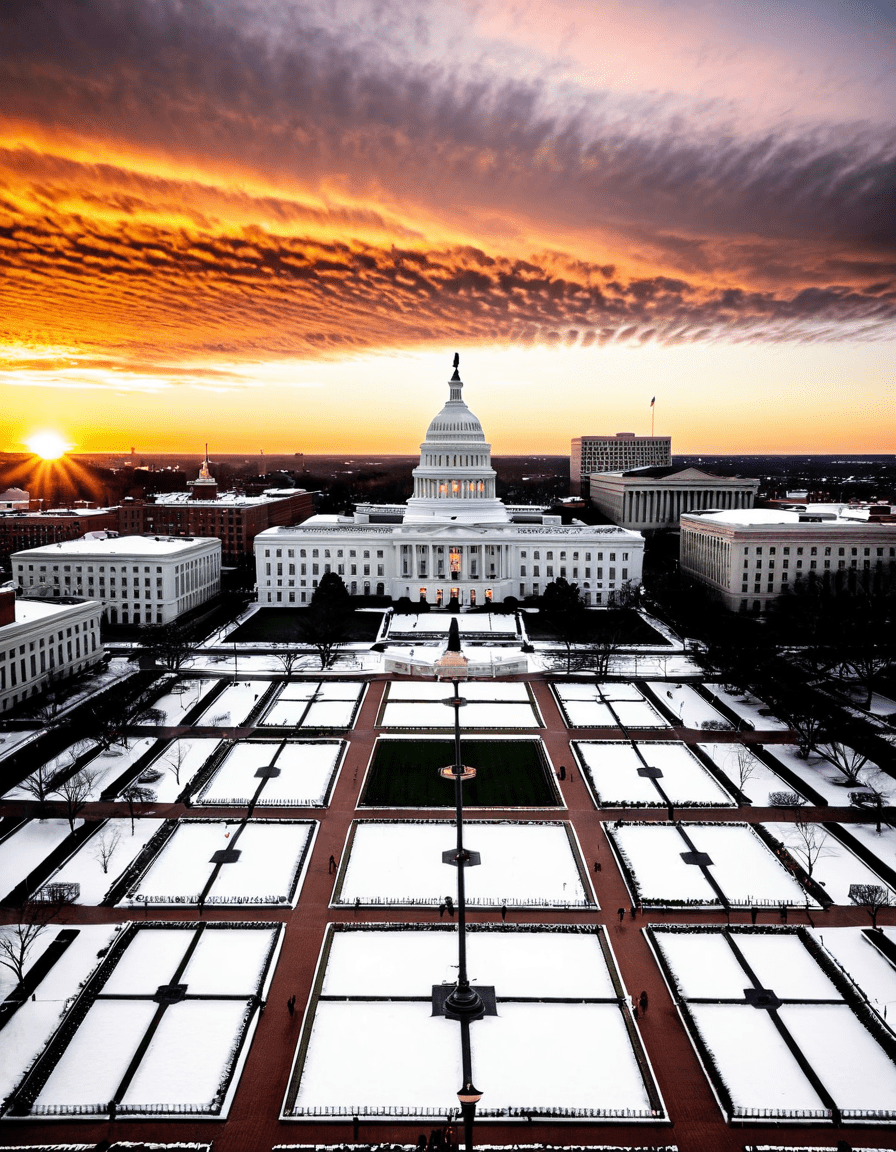
The Broader Implications of Trump’s Aid Freeze
The implications of Trump’s freeze on federal aid extend far beyond immediate financial concerns. Economic analysis indicates that local economies will take a hit as businesses dependent on public contracts and funding face serious threats of insolvency. The psychological impact on communities, as residents grapple with the loss of essential services, further intensifies the national unrest. Many find themselves questioning the reliability of governmental support, creating an environment of distrust that could persist long after these measures are lifted.
Navigating the Political Landscape Amidst Unrest
Amid growing civil unrest and dissatisfaction, political figures from various backgrounds have stepped forward to advocate for restoring federal aid. Progressive Democrats have been outspoken in criticizing Trump’s decision, emphasizing that reinstating this financial support is crucial for achieving social equity and economic recovery. Yet, Republican leaders seem reluctant to address the issue. Many fear alienating key constituents while also trying to maintain party unity in a time of internal strife.
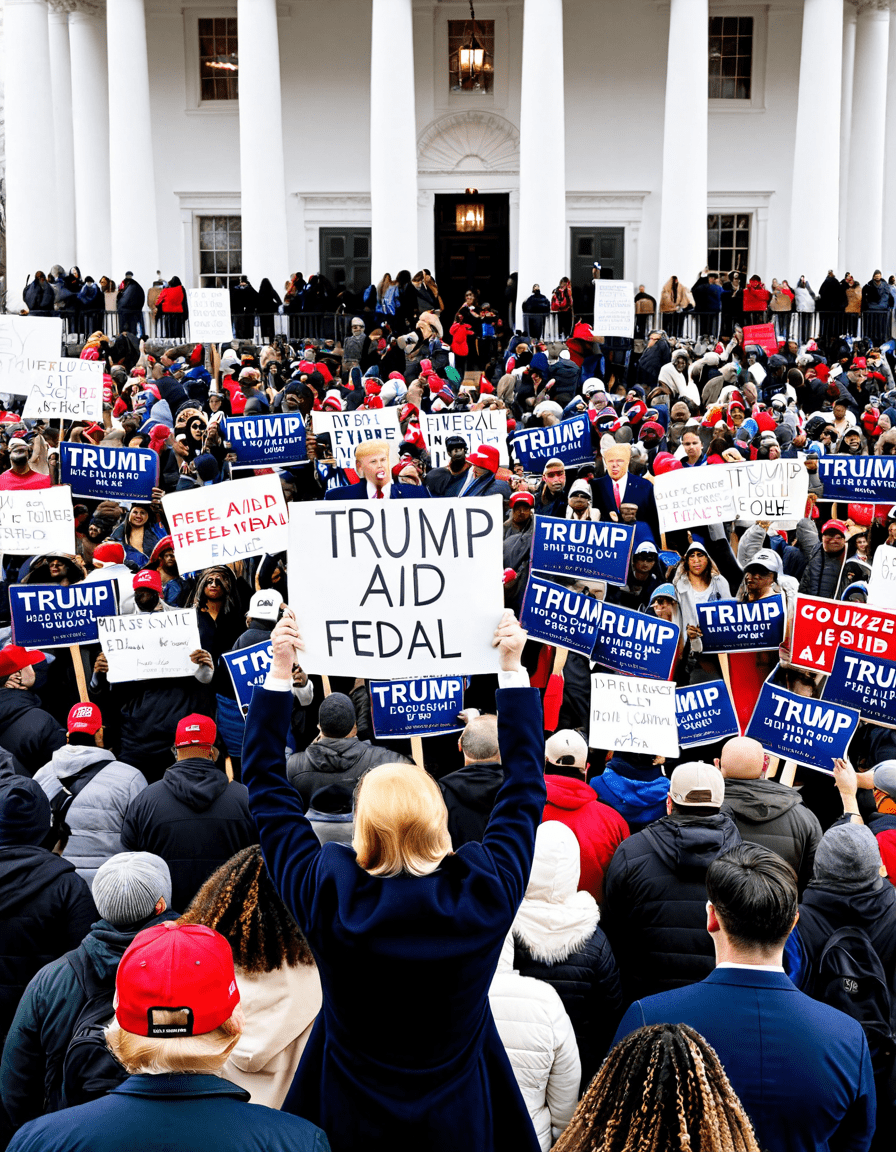
Alternatives and Solutions for Impacted Communities
Despite the turmoil that Trump’s freeze on federal aid has created, grassroots organizations have emerged to fill the gaps. Initiatives like “Local Aid Restart,” launched in Baltimore, are stepping in to provide crucial support to communities left vulnerable by federal cuts. From food distribution programs to job placement assistance, these organizations not only help mitigate some immediate impacts but also foster conversations about developing sustainable support systems for the future. With a collective effort, they’re working towards resilience and empowerment in the face of adversity.
The turmoil ignited by Trump’s freeze on federal aid has sparked a national dialogue about the government’s role in supporting its citizens. As Americans grapple with the consequences of this policy, the evolving landscape of aid, legality, and governance is set to shape the future trajectory of administrations to come. It is vital for all parties involved to engage meaningfully with the pressing needs of their constituents, ensuring that no one is left behind in this turbulent time.
Trump Freezes Federal Aid: Fun Facts and Trivia
Controversial Cuts and Their Impact
When the news broke that Trump freezes federal aid, citizens took to the streets, expressing their frustrations through protests and rallies. This unrest echoes throughout history. Did you know that Madison Square Garden once hosted a monumental concert to rally for causes? Concerts have always been a platform for change, just like Advocacy through art emphasizes today. As communities grapple with the implications of these aid freezes, many wonder how local services could be affected.
With federal programs on the line, state budgets face serious strain. For instance, transportation systems like r Trains could see disruptions, impacting daily commutes. It’s kind of wild to think about how budget decisions can ripple through society, much like how pivotal figures—like Jacqueline Kennedy onassis—influenced public perception and policy with their charm and advocacy during challenging times. Just as she navigated her unique role with grace, today’s leaders must tackle financial hurdles that require equally imaginative solutions.
Fallout and Historical Parallels
The freezing of federal funds often leads to public unease. It’s worth noting that historical aid cuts have frequently been met with similar chaos. One notable instance is when various art initiatives faced budget slashes, yet innovative projects persevered through public engagement, including efforts like those highlighted in “Advocacy through art.” While many see despair in these cuts, history shows resilience in the face of government decisions.
Cultural icons can also provide a framework for understanding society’s upheaval. Even figures like Greta Gerwig have shown how storytelling can empower movements, underscoring the power of art and media to influence public discourse. Plus, when we think about how federal aid freezes disrupt vital services, it’s reminiscent of how the loss of support can change lives in mere 13 hours, showing just how quickly communities can feel the pinch. In times like this, the call for creativity becomes even more pressing—people often find unique ways to voice their discontent and explore alternative solutions.
Community Response and Artist Inspiration
With the potential long-term consequences of the aid freeze, we must spotlight the people who rise to the occasion. Creatives and community advocates alike are stepping up, echoing the practices of prominent figures who have previously used their art to drive social conversations. From Kira Noirs” impactful performances to local grassroots efforts, the arts continue to thrive amid adversity.
It’s fascinating to think about how a small regional airline like Contour Airlines might adjust its services to cater to community needs during tough times. Likewise, individuals enrolling in a speech class For Adults are finding their voices, connecting the dots between personal empowerment and broader social challenges. And as protests unfold, many are reminded that they, too, have the power to influence change—perhaps one impassioned speech or artistic performance at a time. What remains clear is that the impact of Trump’s decision to freeze federal aid resonates on multiple levels, inspiring a resurgence of creativity and activism across the nation.
